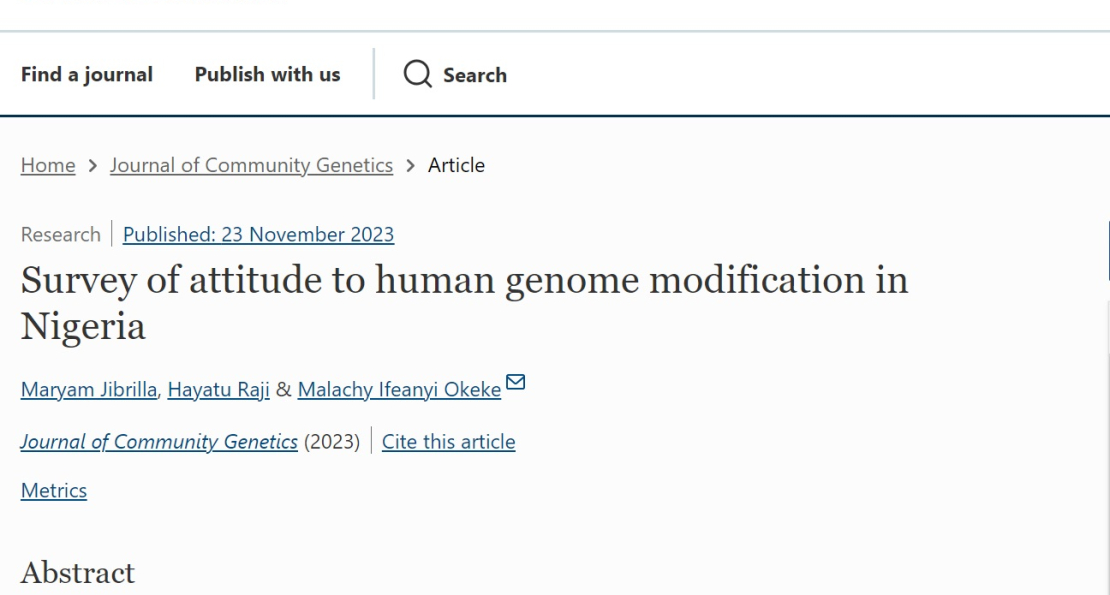A recent study by AUN researchers reveals poor Nigerian public knowledge about gene editing and Mitochondrial Replacement Therapy (MRT). By way of explanation, "gene editing and MRT', according to the researchers, "are biotechnologies used to modify the host nuclear and mitochondrial DNA, respectively."
The paper, titled "Survey of attitude to human genome modification in Nigeria", was authored by AUN Natural and Environmental Sciences (NES) graduate Maryam Jibrilla and two faculty members, Dr. Hayatu Raji and Dr. Malachy Ifeanyi Okeke. Ms. Maryam Jibrilla is the first author, and Assistant Professor Malachy Okeke is the senior and corresponding author. The study was published in the Journal of Community Genetics, a Springer Nature Journal with (JCR Impact Factor 1.9 and Scopus CiteScore 3.5).
In the study, the AUN researchers, who drew their data from Maryam's senior research project, surveyed stakeholders' attitudes to human genome modification for gene therapy in Nigeria. "The Nigerian public, health workers and bioscientists supported the use of somatic and heritable genome modification to prevent and cure debilitating diseases as well as for enhancement purposes such as intelligence and athletic abilities."
The researchers concluded that "morality and religion have great influence on the attitude of Nigerians towards genome modification," but that "the influence of religion and morality is not unequivocal."
Find below the link to the published article:


